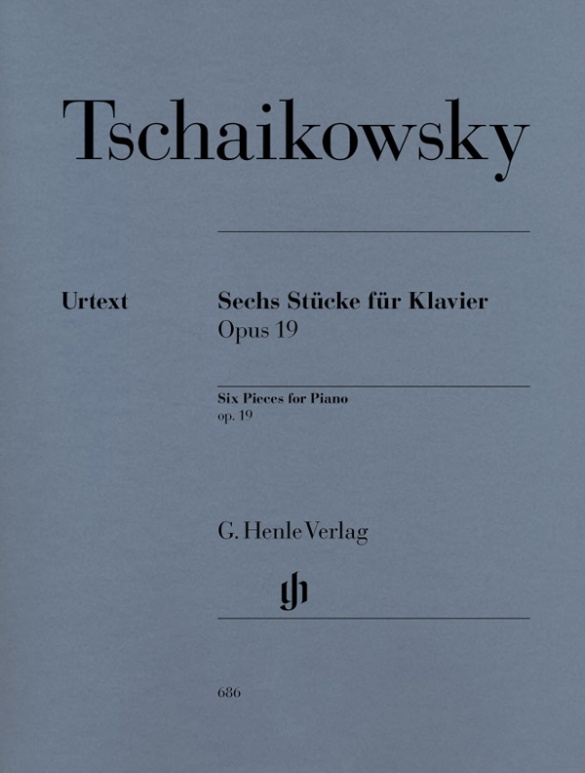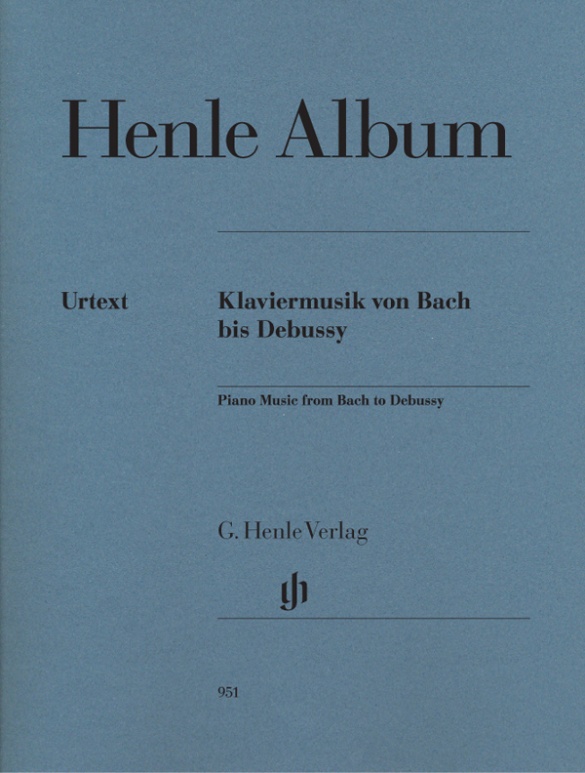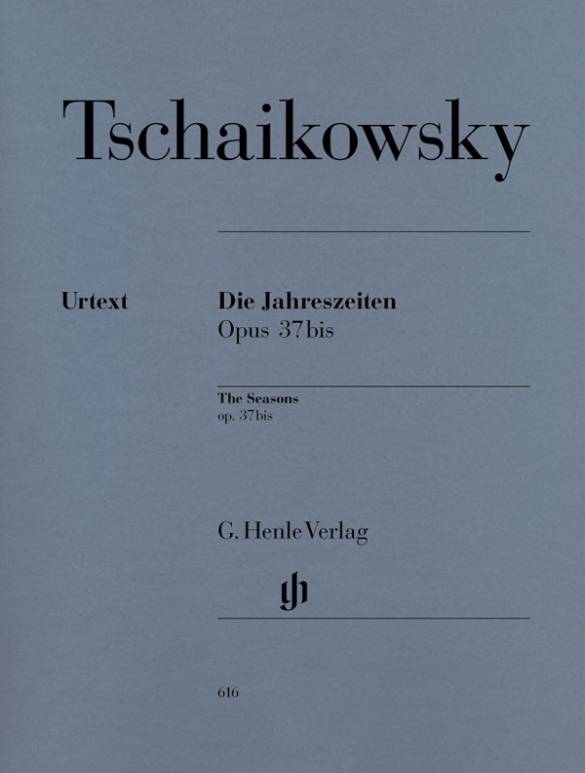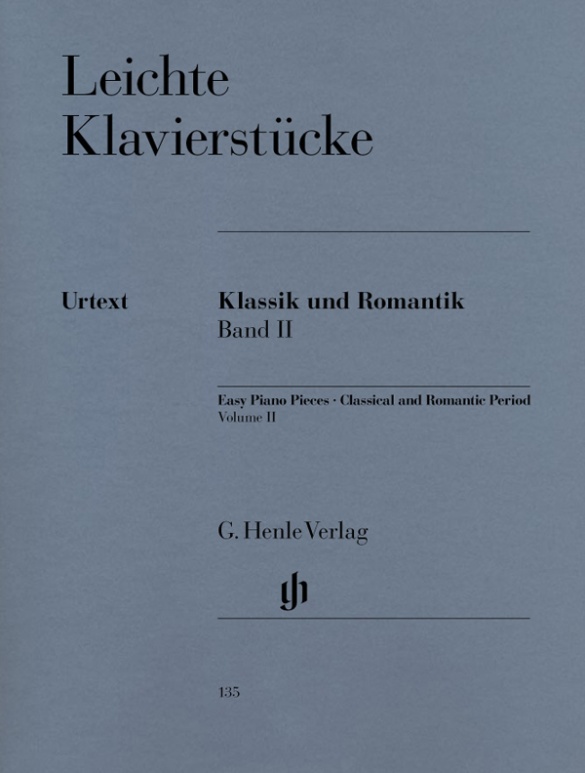Peter Ilich Tchaikovsky
Six Piano Pieces op. 19
Peter Ilyich Tchaikovsky numbers among the most frequently performed composers in the concert halls of the world. He had already composed two symphonies, three operas, the fantasy-overture “Romeo and Juliet” and a string quartet when he wrote his enchanting “Six Pieces for Piano” op. 19 in 1873. Each of the pieces is dedicated to one of his friends or to pianists close to him, and was individually tailored to their respective technical abilities. This Henle Urtext edition offers a preface that discusses in detail the genesis and the source situation of these piano pieces. They offer a good opportunity to get to know and love this popular Russian composer away from his best-known works.
内容/詳細
作曲家について
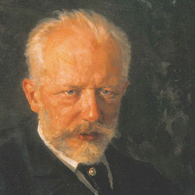
Peter Iljitsch Tschaikowsky
Most important and first professionally trained Russian composer of the nineteenth century; main works include operas, ballet music, six symphonies, three piano concerti, and one violin concerto, as well as songs, chamber music, and piano music.
| 1840 | Born in Votkinsk on May 7, the son of a mining engineer. |
| 1849–59 | Educated as an attorney. |
| 1861–65 | Study of music; he numbers among the first graduates of the St. Petersburg Conservatory. Piano studies with Anton Rubinstein. |
| 1866–76 | He relocates to Moscow to teach harmony, instrumentation, and free composition at what later became the Moscow Conservatory. Composition of Symphonies No. 1 through 3 (Opp. 13, 17, 29), the Piano Concerto No. 1 in B-flat minor, Op. 23, the three string quartets (Op. 11 in 1871, Op. 22 in 1874, Op. 90 in 1876). |
| 1868–76 | Active as a reviewer. He attends the premiere in Bayreuth of Wagner’s “Der Ring des Nibelungen” in 1876. |
| from 1877 | Travels at home and abroad. Beginning of patronage from Nadezhda von Meck. Composition of the Symphony No. 4 in F minor, Op. 36, premiered in Moscow in 1878. Premiere of the ballet “Swan Lake,” Op. 20. |
| 1879 | Premiere in Moscow of “Eugene Onegin,” his best-known and most important opera. |
| 1884 | Premiere in Moscow of “Mazeppa.” |
| from 1887 | Regular performances as conductor of his and others’ work. He is regarded abroad as the most important exponent of Russian music |
| from 1888 | Granted an annuity for life by the Tsar. |
| 1888 | Composition and premiere in St. Petersburg of the Symphony No. 5 in E minor, Op. 64; fate motive appears as a kind of “idée fixe.” |
| 1892 | Premiere of the ballet “The Nutcracker,” Op. 71. |
| 1893 | Composition of the Symphony No. 6 in B minor (“Pathétique”), Op. 74, which is premiered in St. Petersburg in October that year. |
| 1893 | Death from cholera in St. Petersburg on November 6. |
校訂者や運指担当者について

Klaus Schilde (運指)
Prof. Klaus Schilde, born in 1926, spent his childhood in Dresden. There he was greatly influenced by Walter Engel, who taught him the piano (Kodaly method), composition and violin. From 1946–1948 he studied at the music conservatory in Leipzig with Hugo Steurer. After moving to the west in 1952 he studied with Walter Gieseking and Edwin Fischer, as well as with Marguerite Long, Lucette Descaves and Nadia Boulanger in Paris.
Schilde won numerous prizes. From 1947 onwards he gave concerts as a soloist and chamber musician on almost every single continent with renowned orchestras. He taught at the music conservatories in East Berlin Detmold, West Berlin, Munich, Tokyo (Geidai) and Weimar. From 1988–1991 he was President of the Staatliche Hochschule für Musik und Theater in Munich, where he also taught for decades as a professor. There are numerous radio and television broadcasts with Klaus Schilde as well as CD recordings. Schilde has contributed fingerings to almost 100 Henle Urtext editions.
Prof. Klaus Schilde passed away on 10 December, 2020.
製品安全に関する情報

G. Henle Verlag
製品の製造元に関する情報はこちらでご覧いただけます。G. Henle Verlag
Forstenrieder Allee 122
81476 München
info@henle.de
www.henle.com
Es war schon immer etwas teurer einen guten Geschmack zu haben. So mancher wird zögern, knapp 30 Mark für ein Heft von 40 Seiten auszugeben: Aber jede einzelne Seite ist es wert. Lange nicht mehr hat man die "Sechs Stücke für Klavier" aus einer so großartigen Ausgabe spielen können, wie sie jetzt vorliegt. Gerade Tschaikowskys Musik hat, wie die erstaunlich vieler anderer russischen Komponisten, viel unter mittelmäßigen und fehlerhaften Ausgaben zu leiden gehabt. Diese Zeit dürfte mit dem Engagement des Henle-Verlages vorbei sein. Es ist anzunehmen, dass der abgedruckte Notentext zu fast 100 Prozent dem Willen des Komponisten entspricht und es macht Spaß, aus dieser Ausgabe zu spielen. Zu der Musik selbst braucht wenig gesagt zu werden: Wer diese Stücke noch nicht kennt, dem sei so viel gesagt, dass es sich hier wohl um eine Glanzleistung in Tschaikowskys Klavierschaffen handelt und sich schon um der Variationen willen der Kauf lohnt.
Piano NewsHet uitgebreide historische voorwoord vermeldt de nodige bijzonderhedenover de ontstaansgeschiedenis, eerste uitvoering en diverse edities van de stukken. Dankzij Henle beschikken we nu over een zestal parels uit de Russische pianoliteratuur in een voorbeeldige uitgave. Warm aanbevolen.
Pianowereld... Ces pièces ont très vite séduit leurs dédicataires pour leur côté extrêmement pianistique. ... Trois sources sont intervenues dans cette édition: l'autographe qui a servi de modèle pour la première édition, la première édition et le 2e volume des œuvres complètes révisées par Pabst en qui le compositeur avait entière confiance. Aujourd'hui, l'opus 19 fait partie du répertoire des pianistes, dans son cycle intégral ou en pièces isolées. Rappelons encore la qualité de gravure propre aux Editions Henle.
CrescendoThis newly released single volume of Tchaikovsky, previously available from the publisher only in larger collections, lives up to the high standards one expects from G. Henle Verlag. The generous size and spacious format, the high-quality presentation, the careful editing with explanatory footnotes and the attention to detail: all are here in abundance, and now made more easily accessible via this single-volume edition. Included is an in-depth preface revealing information not only on the sources used for the current Urtext Edition but also on their compositional genesis. Each piece was designed with the musical and technical skill of a particular pianist-friend of Tchaikovsky in mind, which in turn led to their dedications to well-known pianists of the day. Beautifully conceived and a delight to play from, this is a timely arrival to the pianists’ Urtext library.
Piano Journalおすすめ
autogenerated_cross_selling
このタイトルを含む他の版
このタイトルを含む他の版


